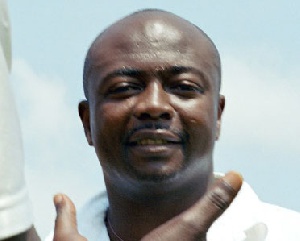THERE is nothing wrong with expatriate coaches, African legendary footballer Abedi Pele has said.
Abedi, who is visiting the Copperbelt, said he saw nothing wrong for any country to engage an expatriate coach as long as the candiadte can deliver. He also said even football powerhouses hired expatriates once in a while.
With the debate raging on whether Zambia should engage an expatriate for the Chipolopolo Boys, the three-time African Footballer-of-the-Year said such a decision was entirely up to the local football association.
"If England or Portugal can engage an expatriate, why not Ghana?" he asked. "I would not comment much on Ghana because I have been in the committee to shortlist coaches for the job but this decision (engaging expatriate) is up to the local FA."
Pele said World Cup pre-quarterfinalists Ghana were expected to appoint a new coach after interviewing the three shortlisted candidates who include Phillipe Troussier, Claude LeRoy and local Cecil Jones Attuquayefio.
He said the three were picked from a pool of 54 candidates eyeing the job left vacant by Rutomir Dujkovic. Zambian fans have been divided on whether they country should employ an expatriate coach following Kalusha Bwalya's resignation as Chipolopolo Boys trainer after a disastrous outing to the African Cup of Nations tournament in Egypt early this year.
Stand-in trainer Patrick Phiri and his deputy Fighton Simukonda have been in charge of the team for three COSAFA Castle Cup matches which they have all won.
Meanwhile, Pele who is on a two-day visit sponsored by Supersport, has urged Zambia national team players to be patriotic when enlisted for national duty.
Commenting of the ensuing club versus country wrangles that players are caught in, Pele said it was important for players to show patriotism towards their countries during important assignments. "Money can be so important but it can't buy everything. It is always important to put your country first because it will be sad for some of our players to take such decisions," he said.
Pele said while it is true that players had lucrative deals outside the country, it was also important that they remembered their backgrounds.
"If you tell me that a player made it without passing through the national team into the professional league, then I will understand. But if it is the Under 17, 20 or senior team that gave them chance to be known, they should be patriotic," he said. Pele said it was every player's responsibility to heed any national call up.
"It's true that players don't make as much money locally but I personally think, whatever the case, national interest comes first," he added.
Pele expressed delight that he was visiting Zambia's Copperbelt region, an area that produced most of his football peers during his heyday.
"This is an opportunity for me to visit where great Zambian players I played with in 1992, who unfortunately are no more," he said. "Since it's my first visit there (Copperbelt), I may of course expect a lot of things from this region."
However, Pele is saddened that the collapse of the mines in the region had led to the decline of standards of football not only on the Copperbelt but the country at large.
"Yes, it's sad to visit the Copperbelt at the times most mines are no more and the great players produced are not forthcoming. It should be a disappointment to me," he said.
Pele is confident his visit would add an element of hope to football stakeholders in the region.
Soccer News of Wednesday, 23 August 2006
Source: .

















